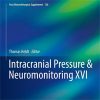Secretomic Approach Value in COVID-19 Viral Pneumonia Among Patients With Respiratory Distress
onlinelibrary.wiley.comthis article presents an innovative and promising secretomic analysis to distinguish VPP patients from NV-ICU patients using combinations of protein markers. Among the identified proteins, ficolin-3 and proteoglycan-4 appear to be deregulated specifically in viral pneumonia patients (VPP) compared to Nonviral infection (NV-ICU) patients.
Additional studies are needed to confirm the results of this research and to evaluate the effectiveness of this method in real-world clinical situations.
In intensive care units, COVID-19 viral pneumonia patients (VPP) present symptoms similar to those of other patients with Nonviral infection (NV-ICU).
To better manage VPP, it is therefore interesting to better understand the molecular pathophysiology of viral pneumonia and to search for biomarkers that may clarify the diagnosis.
The secretome being a set of proteins secreted by cells in response to stimuli represents an opportunity to discover new biomarkers.
The objective of this study is to identify the secretomic signatures of VPP with those of NV-ICU.
Plasma samples and clinical data from NV-ICU (n = 104), VPP (n = 30) or healthy donors (HD, n = 20) were collected at Nantes Hospital (France) upon admission.

















